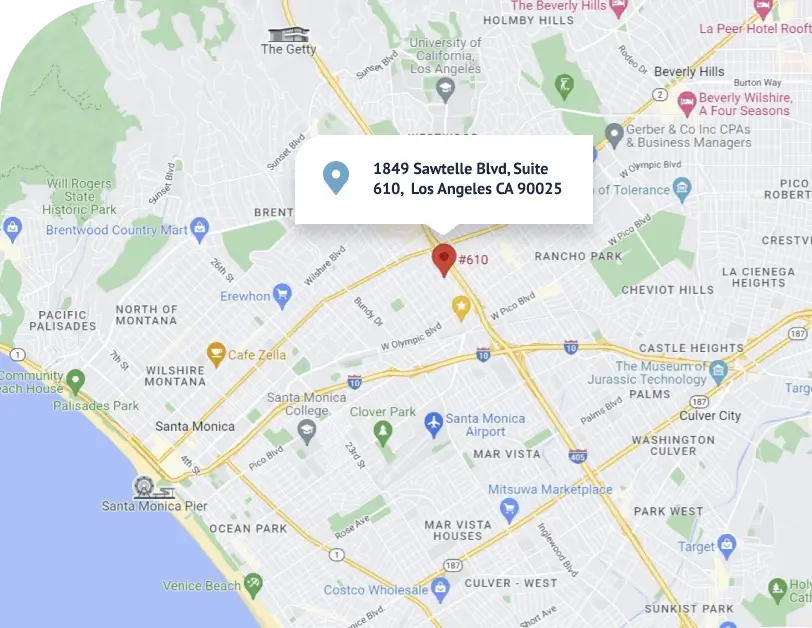Dialectical
Behavior
Therapy
what is dbt?
An Evidence Based Treatment
Dialectical Behavior Therapy (DBT) is a 6–12-month evidence-based treatment (meaning there is research showing it works) for folks who struggle with complex and sometimes severe emotional and behavioral problems.

Dialectical Behavior Therapy
Who is DBT for?
DBT is helpful for folks with high emotional sensitivity (often rapidly shifting emotions),emotional reactivity (intense emotions), and impulsivity, which sometimes lead to maladaptive behaviors such as angry outbursts, using substances, self-injuring, under-eating, over-eating, avoiding school or work, socially withdrawing, or abruptly ending relationships.
Although these behaviors may temporarily reduce emotional pain, they often end up causing more problems and make it difficult to lead a life that feels meaningful and worth living. DBT targets the problems that cause distress and teaches skills to respond to them in a more effective, values-consistent way.
Read More
At its core, BPD is a disorder related to emotion dysregulation. Individuals with BPD experience emotions that are frequent, intense, and longer lasting. These intense emotions can cause distress in the person experiencing them, and impact their functioning and relationships. Feeling intense emotions deeply, rapidly, and constantly can also lead to a sense of feeling out of control for individuals with BPD.
How is BPD treated?
Dialectical Behavioral Therapy (DBT) is considered a gold-standard treatment for BPD, and was created specifically to meet the needs of patients facing the unique challenges of BPD. Dialectical Behavioral Therapy teaches patients with BPD skills that will help them with emotion regulation, relationship building, and effectively getting through life’s most difficult moments. Through DBT, patients with BPD are equipped with skills and support to help them navigate their condition and build their life worth living.
Read Less
Modes of Treatment Delivery
What are the components of DBT?
There are four modes of standard outpatient DBT. This is different than many other psychotherapies that consist of just one mode or aspect of treatment, such as individual therapy. Note: Family participation is also mandatory, meaning at least one primary caregiver must participate in treatment, alongside their teens (ages 13-18) who need DBT.
Individual Therapy
Weekly; 45 minutes
Individual therapy in DBT focuses on helping clients apply the DBT skills to specific challenges they are facing and to change problematic behaviors, beliefs, and emotions. Sessions include going over diary cards, a record of events, target behaviors, and challenges the patient experienced that week. Through going over the diary cards, therapists and patients discuss, practice and troubleshoot skills that could be used in similar situations in the future.
DBT Skills Training
Weekly; 60-120 minutes
Skills training is run in a psycho-educational format, more like a class rather than group therapy where people come to vent or find support. Skills trainers assign homework to help clients practice the skills in their everyday lives. The full curriculum runs for 24 weeks and covers skills in four modules: Mindfulness, Interpersonal Effectiveness, Emotion Regulation, and Distress Tolerance. These skills are concrete and designed to be applied quickly in a wide variety of situations.
In-the-moment Phone Coaching
As needed; ~10 minutes
Patients can call their therapist between sessions when they are experiencing a real-life challenge or crisis, but don’t want to engage in problematic behaviors that might only provide temporary relief (substances, binging, avoidance, self-harm, avoidance, etc.). During these brief (<10min) calls, patients learn how to use their skills in the moments and situations where they need them most, not just during session with their therapist.
Consultation Team of DBT Therapists
Weekly; 60-90 minutes
Each week, all our DBT clinicians—individual therapists and skills group leaders—meet to discuss cases and provide each other with peer-supervision. Together we share responsibility for client care. Our focus during these meetings is on increasing our own motivation, competence, and fidelity to the treatment, while also addressing treatment obstacles to ensure we are able to provide the best possible care to our patients.
Parent Coaching and Family Therapy
Weekly/as needed; 45 minutes
We provide parents with the skills and support needed to balance validation and acceptance with effective limit setting and behavior plans to address and change problematic behavior patterns. Parents also receive skills coaching between sessions. DBT-informed family therapy helps family members better understand and validate each other, facilitate effective communication when there is disagreement, and develop rewarding and meaningful relationships with each other.
"When you plant lettuce, if it does not grow well, you don’t blame the lettuce. You look for reasons it is not doing well. It may need fertilizer, or more water, or less sun. You never blame the lettuce. Yet if we have problems with our friends or family, we blame the other person. But if we know how to take care of them, they will grow well, like the lettuce. Blaming has no positive effect at all, nor does trying to persuade using reason and argument. That is my experience. No blame, no reasoning, no argument, just understanding. If you understand, and you show that you understand, you can love, and the situation will change"
Thich Nhat Hanh
DBT Skills Modules
What is DBT Skills Training?
DBT asserts that pervasive difficulties in managing emotions arise in part from skills deficits. Accordingly, one component of DBT is weekly skills training designed to remedy those deficits and build a “tool box” of skills. We use the following handouts and worksheets for adults and adolescents. If a client has an existing individual therapist, the client may be able to continue with their existing therapist, and we would collaborate on the skills.
Core Mindfulness
Skills for staying fully aware in the present moment, with acceptance and compassion. Mindfulness skills allow us to experience and participate in our reality without the additional baggage and judgements that we so often bring with us.
Distress Tolerance
Skills for tolerating pain in difficult situations. Crisis survival skills help us get through life’s most intense and painful moments without engaging in impulsive or harmful actions that might make things worse. Radical acceptance helps us reduce suffering and make change possible.
Emotion Regulation
Skills for learning to identify, understand, and manage our emotions. This module will also help with reducing vulnerability to Emotion Mind, a mindset in which we make decisions based on emotions instead of values, wisdom, or logical reasoning.
Interpersonal Effectiveness
Skills for making effective requests (and saying no), communicating our needs, managing interpersonal conflicts, and building and maintaining relationships with other people, while also maintaining our own self-respect.
The Middle Path
Skills to balance the dialectic of acceptance and change in ourselves and our relationships. These skills also help us to maintain a balanced viewpoint for ourselves and others, to facilitate conflict resolution and collaborative problem solving.

Research Supporting DBT
Does DBT Work?
Dialectical behavioral therapy is an evidence based treatment, meaning that it has a firm foundation of research showing that it’s effective. Studies have shown that patients with Borderline Personality Disorder (BPD) who receive DBT treatment are 2.4 times less likely to attempt suicide, and are one and a half times less likely to engage in self-harm. Additionally, DBT patients with BPD report significant decreases in depression, hopelessness, anger expression, dissociation, and general psychopathology.
While Dialectical Behavioral Therapy was originally created to treat BPD, DBT can be beneficial for patients with other conditions as well. Regardless of condition (mood disorders, anxiety disorders, substance use disorders, etc), DBT was found to decrease depression and anxiety while also increasing hope. Individuals with eating disorders also benefit from DBT, and adolescents with eating disorders scored significantly lower on the Global Eating Disorder Examination after DBT treatment. Finally, among adolescents with substance abuse disorders, up to 96% of individuals were found to be “recovered” or “improved” following DBT treatment in a residential setting.
Citations
1 Harned, M., Korslund, K., & Linehan, M. (2014). A pilot randomized controlled trial of Dialectical Behavior Therapy with and without the Dialectical Behavior Therapy Prolonged Exposure protocol for suicidal and self-injuring women with borderline personality disorder and PTSD. Behaviour Research and Therapy, 55, 7.
2 Yen, S. B., Johnson, J., Costello, E., & Simpson, E. (2009). A 5-Day Dialectical Behavior Therapy Partial Hospital Program for Women With Borderline Personality Disorder: Predictors of Outcome from a 3-Month Follow-up Study. Journal of Psychiatric Practice, 15(3), 173-182.
3 Ritschel, L., Cheavens, J., & Nelson, J. (2012). Dialectical Behavior Therapy in an Intensive Outpatient Program With a Mixed‐Diagnostic Sample. Journal of Clinical Psychology, 68(3), 221-235.
4 Fischer, S., Peterson, C., & Hilsenroth, M. (2015). Dialectical Behavior Therapy for Adolescent Binge Eating, Purging, Suicidal Behavior, and Non-Suicidal Self-injury: A Pilot Study. Psychotherapy, 52(1), 78-92.
What is the difference?
Comprehensive DBT vs DBT 'Informed'
Not all “DBT” is created equal. Very few therapists practice full model or “comprehensive” DBT. Many
therapists say that they provide DBT because they
- a. attended a DBT training
- b. integrate DBT principles into their practice
- c. teach DBT skills to their clients
This is called DBT “informed” treatment where therapists borrow some aspects of DBT (usually the skills)
and implement those into their existing psychotherapy services.
Not everyone needs Comprehensive DBT
How Do I Know Which
Right for Me?
With a typical commitment of 6 months to 1 year, comprehensive DBT is generally a longer commitment than DBT-informed treatment or other forms of Cognitive Behavioral Therapy (CBT). In our practice, comprehensive DBT is recommended for clients with severe mental health symptoms or life threatening behaviors, such as suicidal ideation and self-injurious behavior.
If you are unsure about which is right for you or your child, schedule a free consultation here.
BLOG POSTS WE’VE WRITTEN
Read More
About DBT
Dialectical Behavioral Therapy is effective because it offers holistic treatment that support clients on multiple levels. While it is more of a time commitment, research shows that patients engaged in adherent DBT have significantly less suicide attempts, treatment dropout, and hospitalizations. These blog posts describe some of the principles, strategies, and skills of DBT in action.
- Sarah Mann
- September 14, 2023
With the recent youth mental health crisis, it can feel overwhelming for children and families of those who are struggling with self-harm or suicide...Read More
- Sarah Mann
- September 19, 2023
Dr. Marsha Linehan is the creator of Dialectical Behavioral Therapy (DBT), a treatment approach we specialize in at the Youth and Family Institute... Read More
- Caleb Spiro
- December 21, 2023
How DBT and validation can help transform intense emotional states, known as ‘emotional dysregulation,’ into more manageable... Read More
- Sarah Mann
- September 28, 2023
Grief can be incredibly difficult. Taking a dialectical approach to grief and allowing ourselves to feel multiple complex emotions can be incredibly helpful... Read More
Our team at the Youth and Family Institute provides comprehensive DBT and other evidence-based treatments to help make positive changes in the lives of children, young adults, and their families.
Testimonials
See What Other Providers Have to Say

Lorem ipsum dolor sit amet, consectetur adipiscing elit. Sed non quam est. Proin sodales risus eu vehicula faucibus. Nam sollicitudin augue egestas elit malesuada, eu cursus mi egestas. In sodales nisi eu tortor porttitor, eget ultricies nisl rutrum. Integer ac justo leo. Ut lectus justo, maximus vitae nisi eget, blandit fringilla ipsum. Pellentesque habitant morbi tristique senectus et netus et malesuada fames ac turpis egestas. Phasellus eu rhoncus velit, ut pellentesque enim.
Emily Richards
Patient of Youth and Family Institute

Lorem ipsum dolor sit amet, consectetur adipiscing elit. Sed non quam est. Proin sodales risus eu vehicula faucibus. Nam sollicitudin augue egestas elit malesuada, eu cursus mi egestas. In sodales nisi eu tortor porttitor, eget ultricies nisl rutrum. Integer ac justo leo. Ut lectus justo, maximus vitae nisi eget, blandit fringilla ipsum. Pellentesque habitant morbi tristique senectus et netus et malesuada fames ac turpis egestas. Phasellus eu rhoncus velit, ut pellentesque enim.
Emily Richards
Patient of Youth and Family Institute
Contact us to schedule a complimentary informational phone call. We will respond within 48 business hours to offer an appointment and provide more details about our practice, services, and rates.
Contact Us
Los Angeles Area Resources
Free Resources
Growing list of ideas for activities (nature, art, social, volunteering, etc.), and ideas for getting active, which is also an important part of feeling better.
Our team provides comprehensive DBT and other evidence-based treatments to help make positive changes in the lives of children, young adults, and their families.
Quick Links
Contact Info
- info@yfinstitute.com
- (323) 800-8883
- 1849 Sawtelle Blvd, Suite 610, Los Angeles CA 90025
- 250 W 1st St, Suite 242, Claremont, CA 91711
- 595 E Colorado Blvd STE 205, Pasadena, CA 91101
Copyright © 2024. All Rights Reserved.
